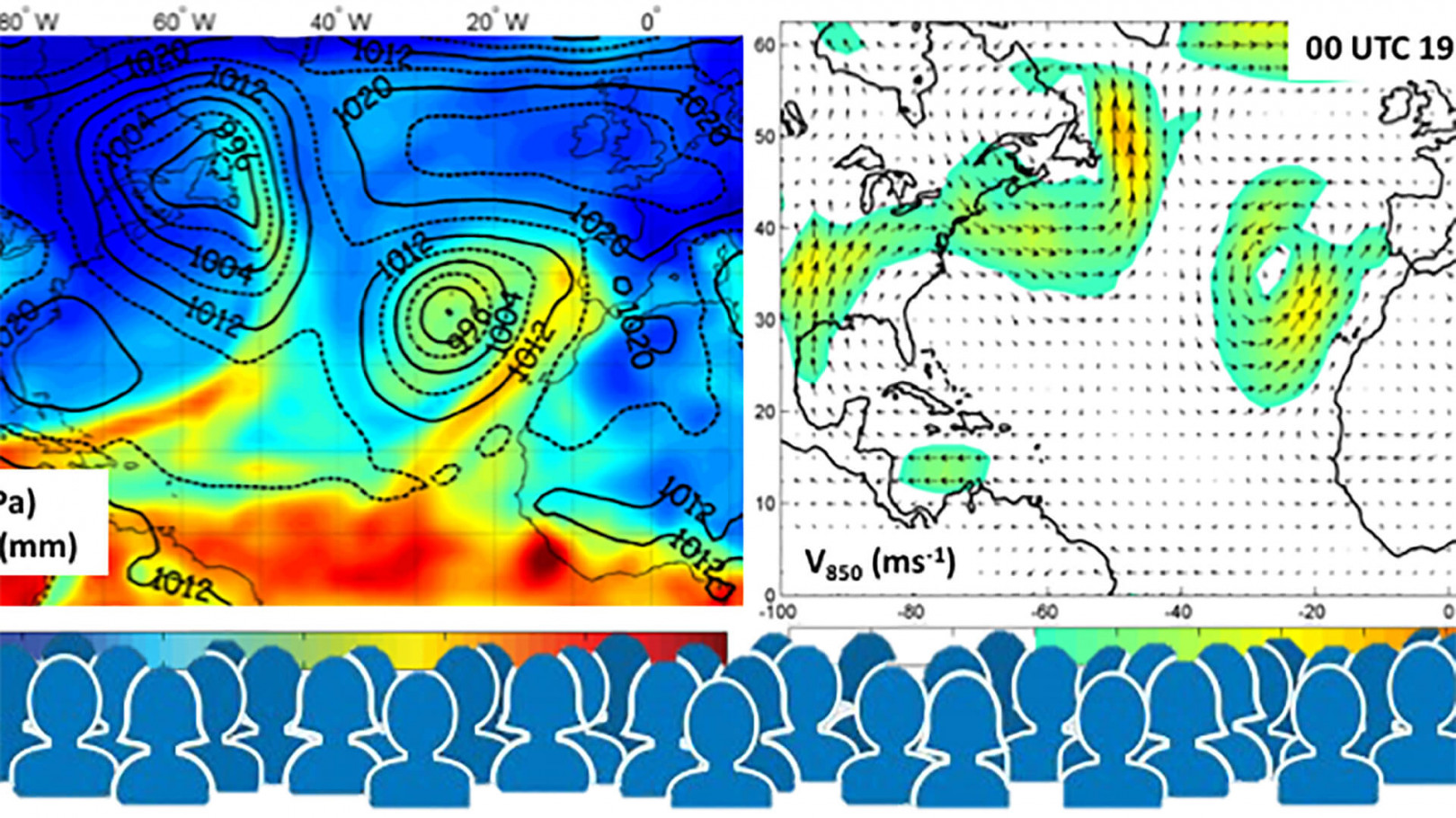Crowdsourcing to investigate extreme atmospheric phenomena
ECSAAP - expert Crowdsourcing for Semantic Annotation of Atmospheric Phenomena is a project led by INESC TEC, in collaboration with the Human-Computer Interaction Institute, of Carnegie Mellon University, and the Institute Dom Luiz.
23rd January 2018
With Hugo Paredes as the principal investigator, cooperating with the Centre for Information Systems and Computer Graphics (CSIG), this project, develop within the scope of informatics and integrated researched based on the context of the AIR Center, which aims to explore the application of crowdsourcing in weather research and its changes, consulting specialist’s annotions of atmospheric phenomena.
The main concern consists on enhancing the methods and computational resources optimization through the application of the research on Big Data to better comprehend the extreme phenomena such as explosive extratropical depressions and atmospheric rivers and predict future events.
The automatic procedures use special algorithms customized to identify common characteristics in the data, while the manual procedures require human computation to process the data and make association between them. This consortium allows to create innovation, establishing synergies between the research of the IDL team in identifying, following and understanding extreme phenomena and the use of specialised crowdsourcing to note this kind of systems.
Crowdsourcing is frequently used as a solution to data collection in the scope of multidisciplinary researches, allowing an efficient use of human computing. Despite its broad application by citizens in the weather changes issue, it is still relatively less explored in its specialised field, reaching in this case to the scientific community of atmospheric sciences.
With a duration of 12 months, o eCSAAP will allow the exchange of information and the development of an interdisciplinary and common work base, following the strategy conceived in the most recently founded AIR Centre - Atlantic International Research Centre, created to develop integrated research activities about the Atlantic in what concerns weather, land, space and ocean.
The researcher mentioned in this news piece is associated with UTAD.


